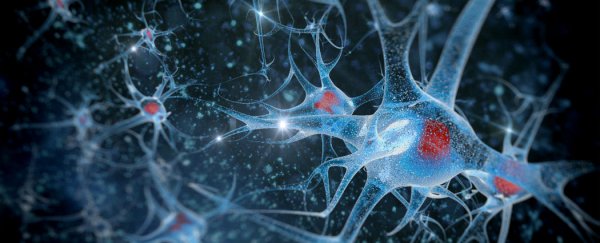The results of a new Alzheimer's drug trial are in, and it appears that researchers in the UK have found the first drug to slow the progression of the disease. According to data presented at the Alzheimer's Association International Conference (AAIC) in Washington, DC this week, the new drug is no cure, but can cut the rate of progression by about a third.
"This is the first evidence of something genuinely modifying the disease process," Eric Karran, director of research at Alzheimer's Research UK, told Hannah Devlin at The Guardian. "It's a breakthrough in my mind. The history of medicine suggests that once you get through that door, you can explore further therapeutic opportunities much more aggressively. It makes us less helpless."
Called Solanezumab, the drug has been developed by American pharmaceutical company Eli Lilly, and the last we heard of it was back in 2012, when an 18-month trial involving Alzheimer's patients from 16 different countries appeared to fall flat, having failed to hit "primary endpoints, both cognitive and functional".
But there was still potential there, with the data showing that patients with "mild Alzheimer's disease showed a statistically significant reduction in cognitive decline". Turns out that the 1,300 patients with mild Alzheimer's who were taking Solanezumab throughout the trial actually declined 34 percent more slowly than those who were taking a placebo.
But the team still needed to prove that Solanezumab was in fact slowing down the progression of the disease, not just treating the symptoms by altering the patients' mood or giving them heightened concentration so they could perform better in memory and cognitive function tests.
So the researchers asked these patients to continue taking the drug for another two years while the placebo group did the same. The results of that follow-up trial have just come in. "Those in the first cohort to take the drug continued to have slower decline," Charlie Cooper reports for The Independent. "If the drug were only affecting symptoms, the placebo group would have been expected to 'catch-up', but this was not the case, indicating that the drug is acting on the disease process, not just the symptoms."
According to Hannah Devlin at The Guardian, because the mild Alzheimer's patients were yet to experience the worst symptoms of the disease, such as severe personality changes and loss of memory, the positive effects of Solanezumab would have been barely perceptible to patients or their families. "But the wider implications of the results have been hailed as 'hugely significant' because it is the first time any medicine has slowed the rate at which the disease damages the brain," she says.
The drug works by acting on amyloids - one of two types of brain lesions thought to drive the progression of Alzheimer's disease. Amyloid sits between the neurons and forms dense clusters of beta-amyloid molecule - a sticky type of protein that clumps together into plaques. These plaques interfere with connections between brain cells, which appears to cause progressive memory loss and cognitive decline. Solanezumab finds these and dismantles them, causing them to slowly disintegrate away.
The team says that because positive effects were not seen in patients with severe Alzheimer's disease - only those who were yet to experience the worst symptoms of the disease - the drug will probably only work if given very early on.
While we're allowed to be excited by the results, we can't get carried away just yet, because the results do need to be replicated by an independent team. "I am cautiously optimistic, from the perspective of the audience, they should be too," Richard Morris, a neuroscientist at the University of Edinburgh in the UK who was not involved in the study, told The Guardian. "This is not a mouse study, it's a people study. And that matters."
The Eli Lilly team is continuing their research, with the results of a third trial expected to be released some time in 2016.
